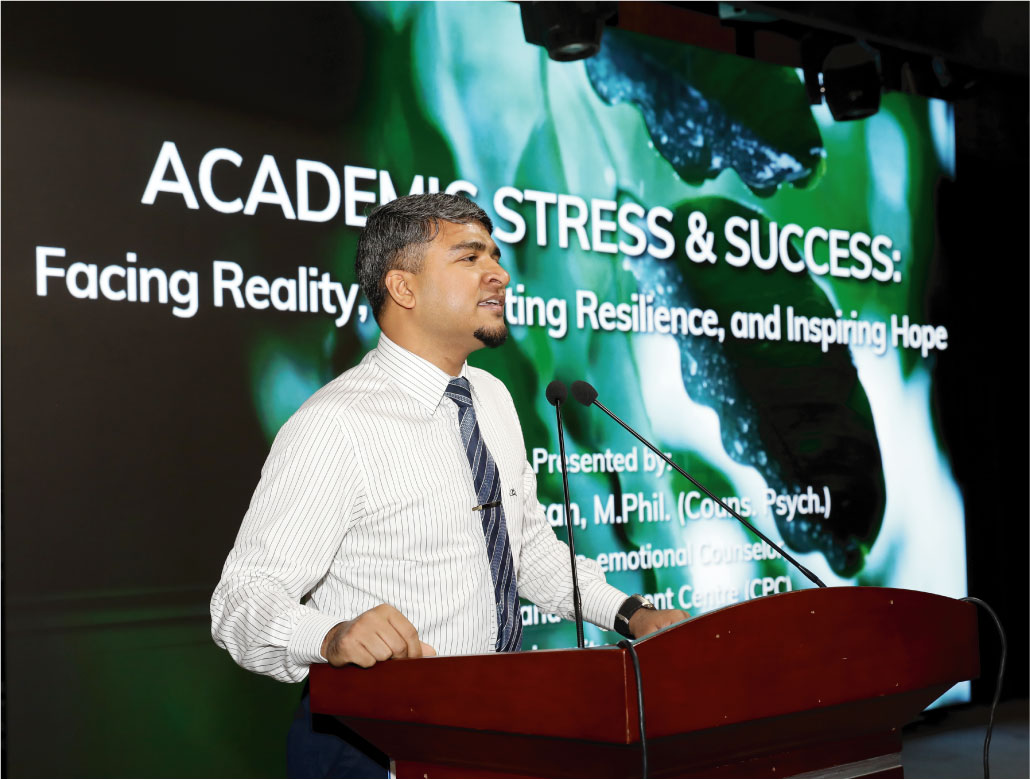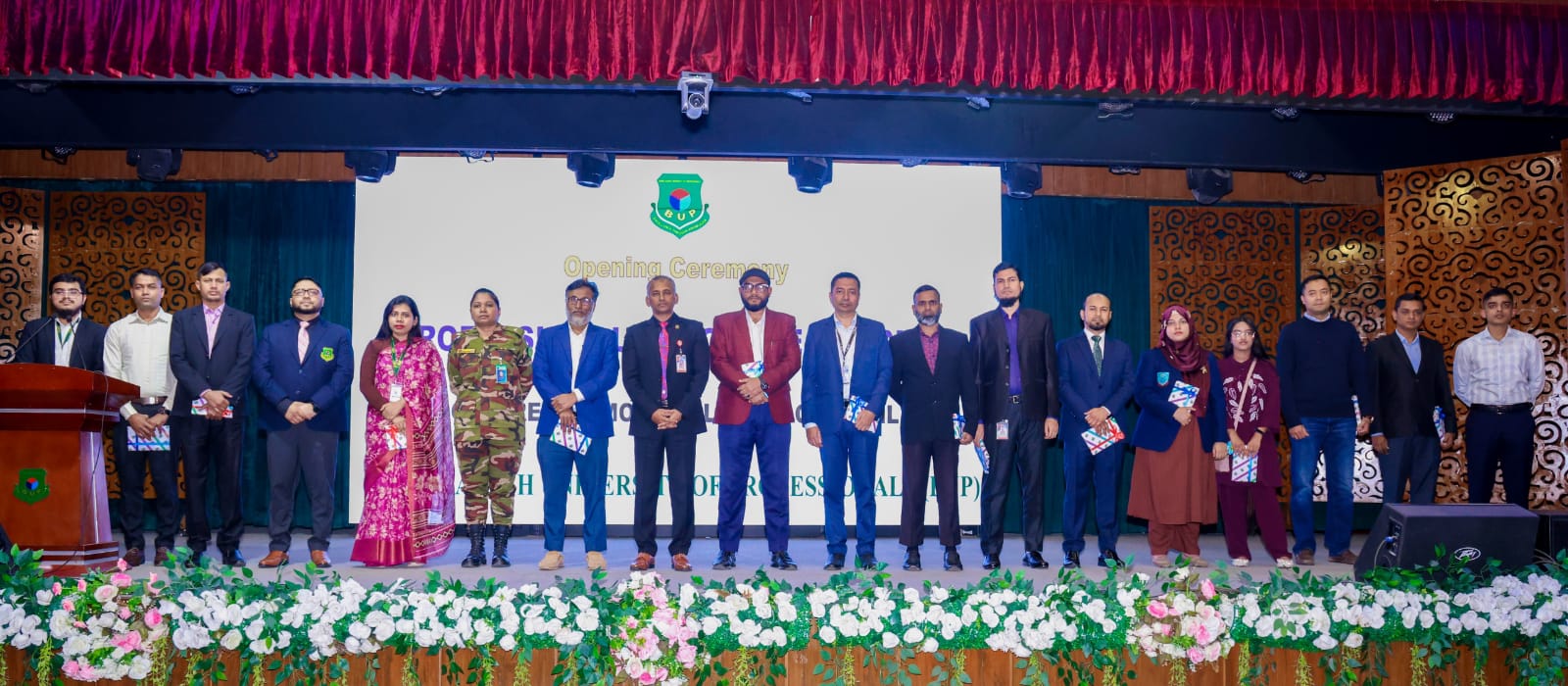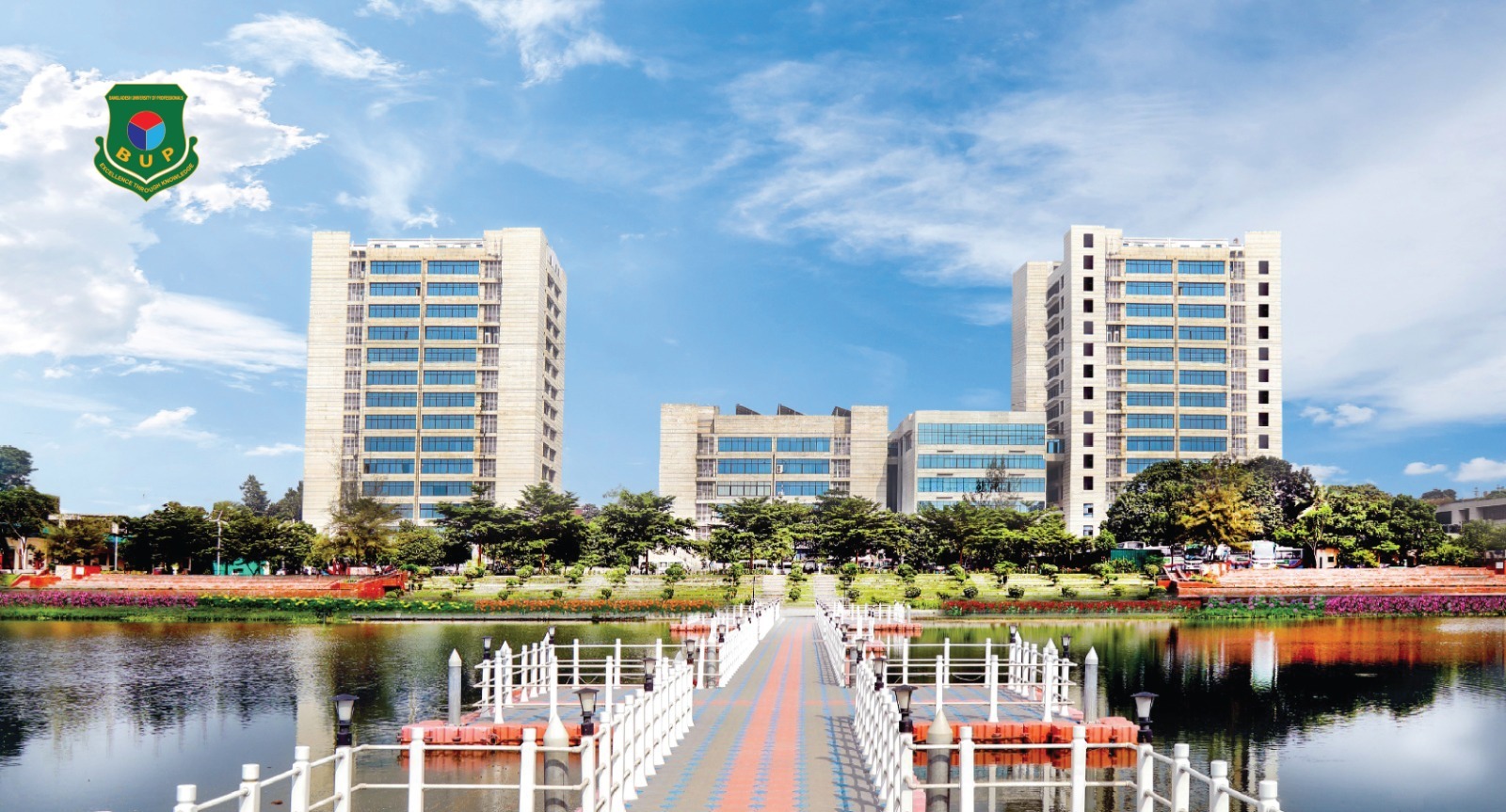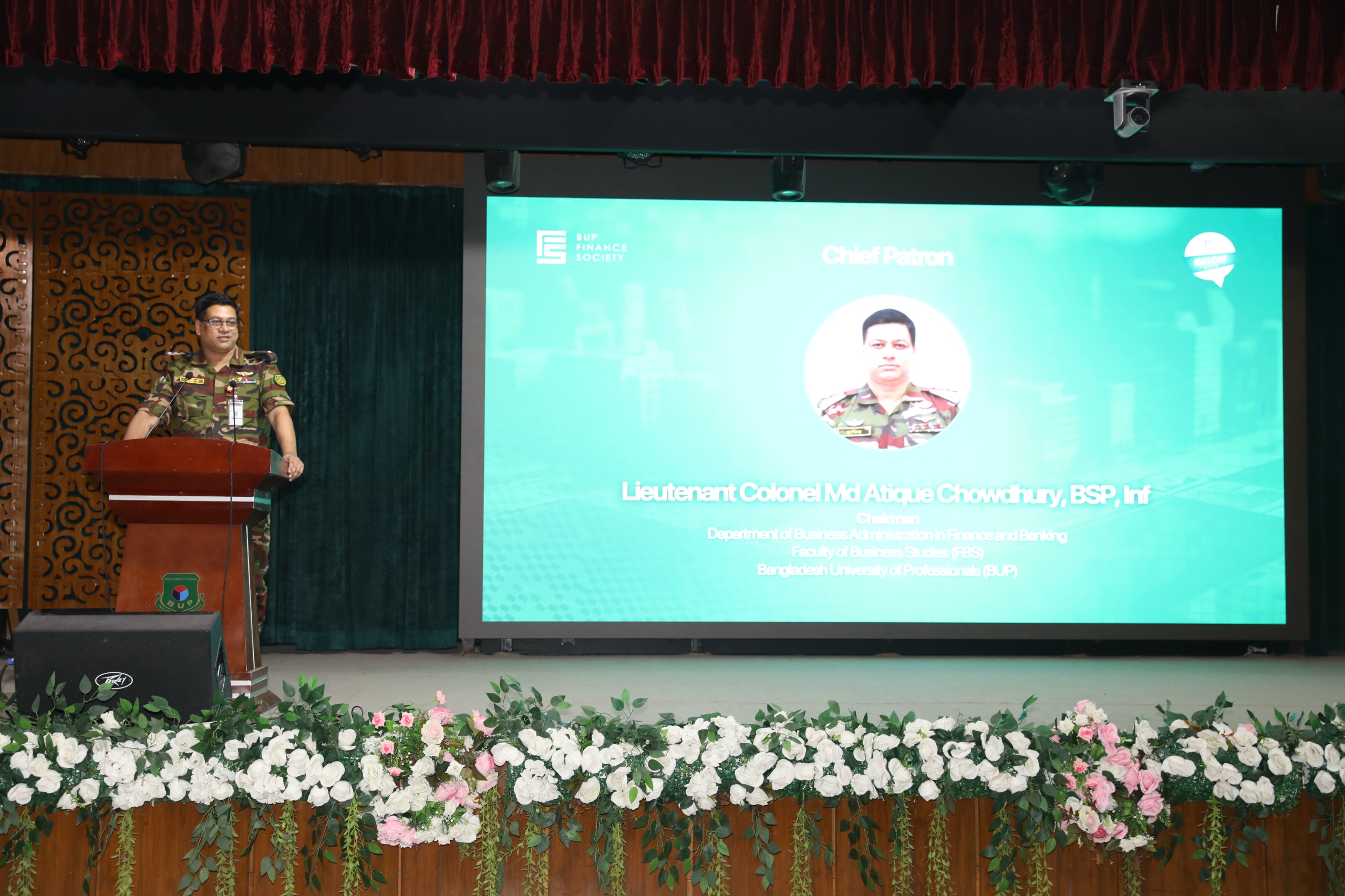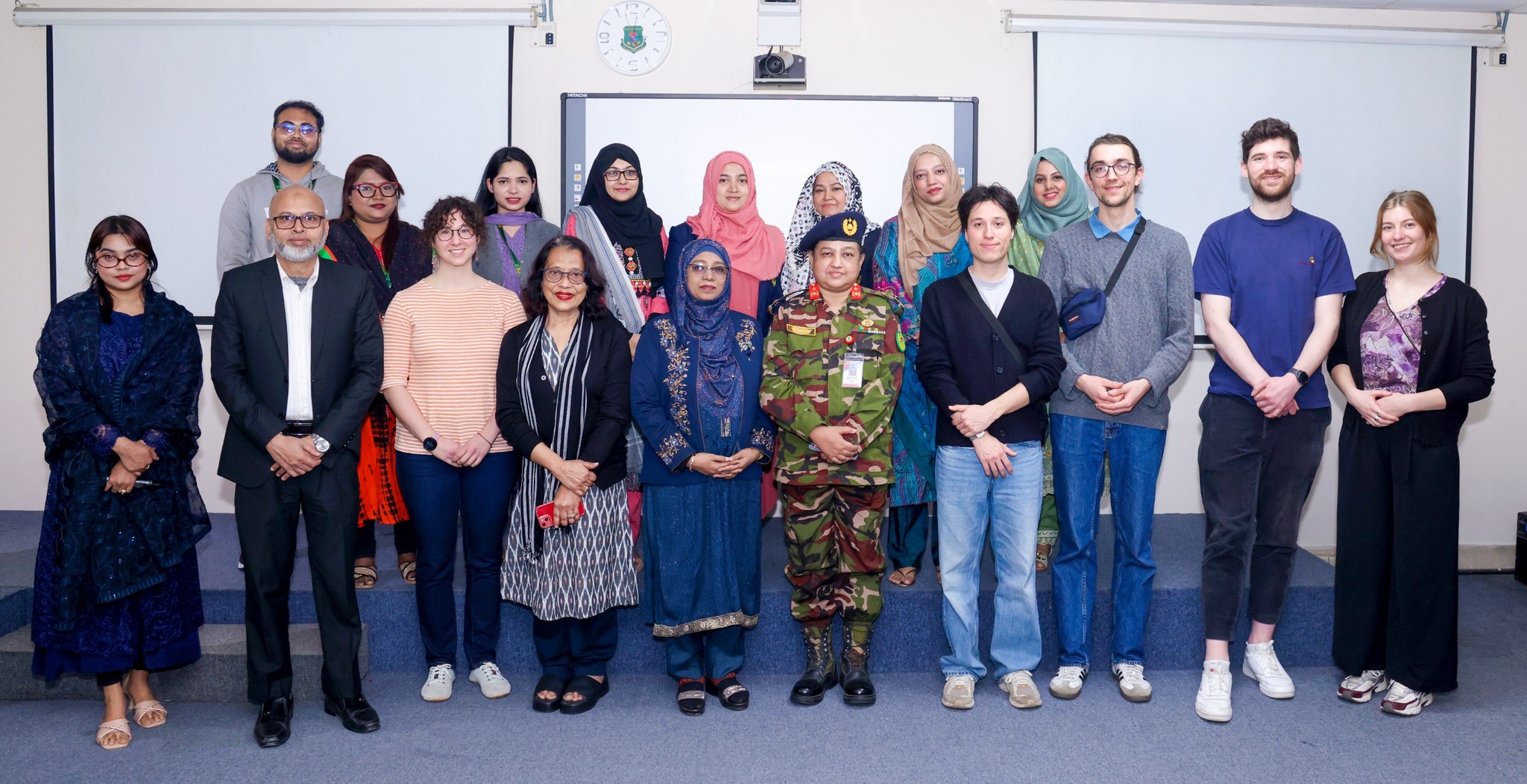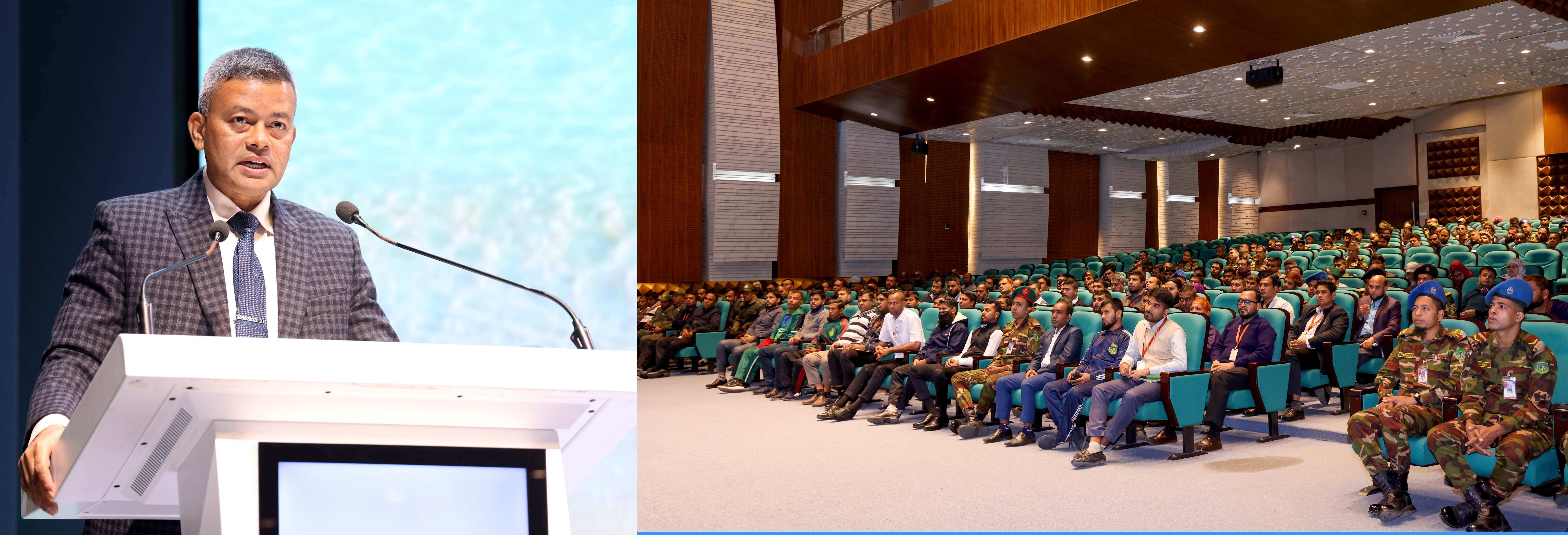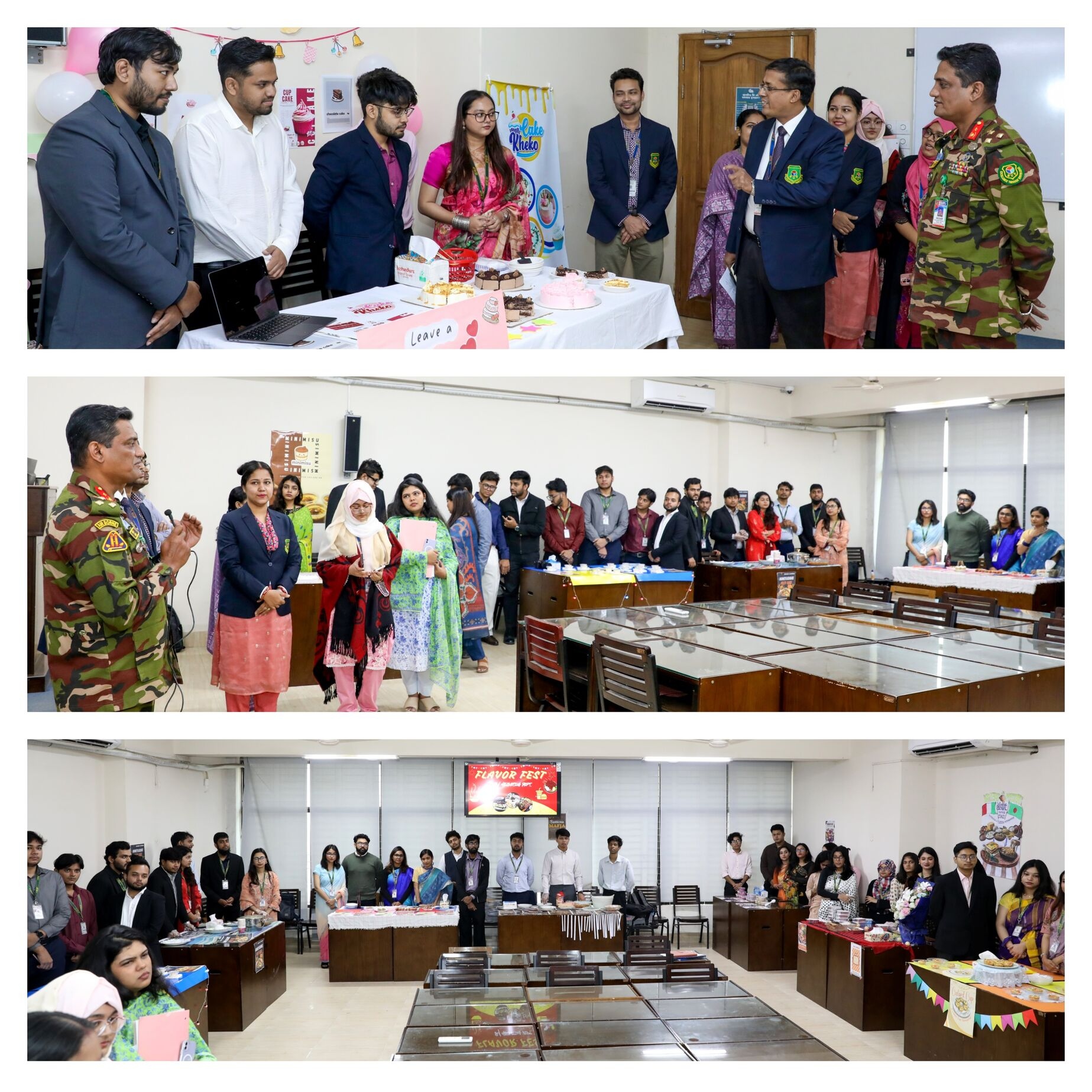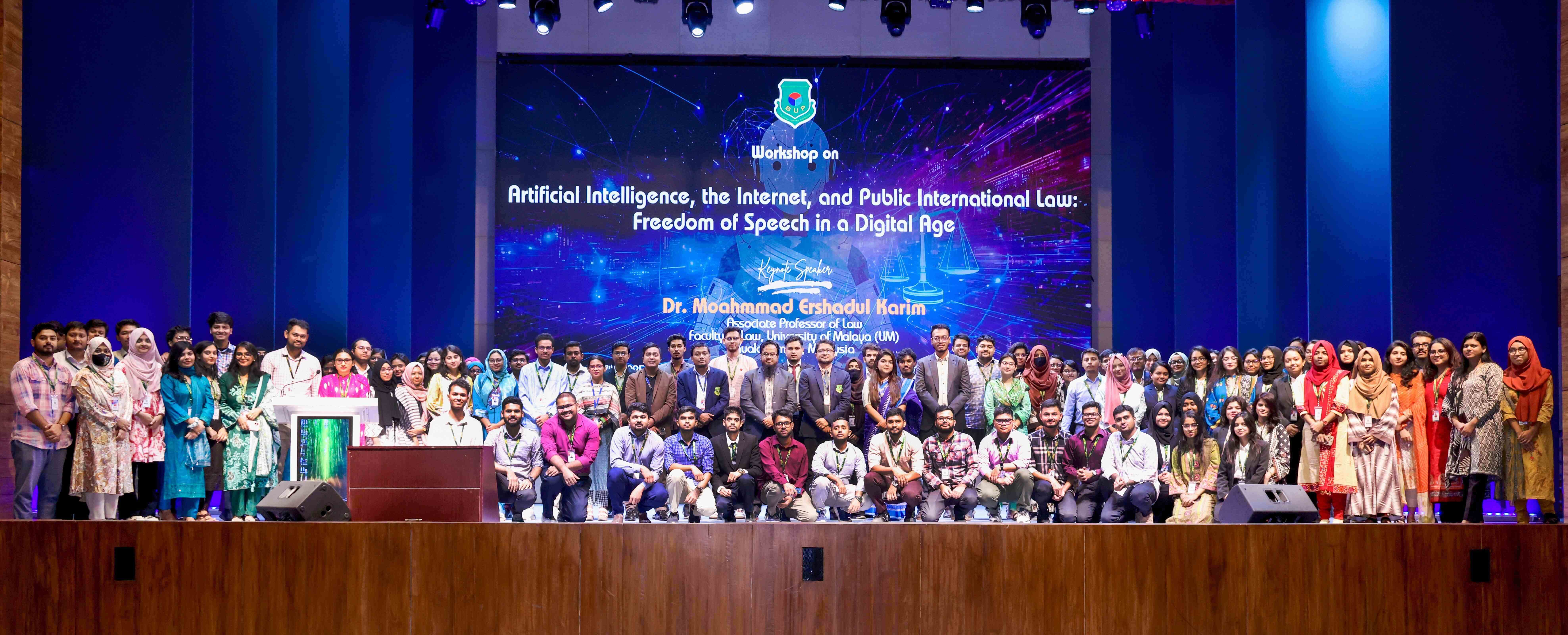
A Workshop on “Artificial Intelligence, the Internet, and Public International Law: Freedom of Speech in a Digital Age” held in BUP
17 Nov 2025
The Department of Law under the Faculty of Security and Strategic Studies (FSSS), Bangladesh University of Professionals successfully hosted a workshop titled “Artificial Intelligence, the Internet, and Public International Law: Freedom of Speech in a Digital Age” on 17 November 2025 at the Shadhinota Auditorium. The event began at 9:00 AM and was attended by students from the Departments of Law and International Relations, faculty members and distinguished guests. The session was graced by the presence of the Dean of FSSS, Brigadier General Muhammad Ali Talukder, ndc, afwc, psc.
The keynote speech was delivered by Dr. Mohammad Ershadul Karim, Associate Professor at the Faculty of Law, Universiti Malaya, Malaysia. Dr. Karim, an accomplished academic with LL.B. (Hons.) and LL.M. from the University of Dhaka and a PhD in Nanotechnology Law and Policy from the University of Malaya is also a Visiting Professor at various international universities including Lanzhou University in China, Al-Farabi Kazakh National University in Kazakhstan and Diponegoro University in Indonesia. He has published from world renowned publishers like Cambridge & Oxford University press, Thomson Reuters etc.
Dr. Karim’s lecture provided a clear and engaging overview of how technology particularly the Internet and Artificial Intelligence intersects with public international law and human rights. He traced the historical and philosophical evolution of technology, explained the borderless nature of the Internet and discussed key AI concepts including Generative AI, drawing on debates such as the Turing Test and the Chinese Room. He highlighted how AI-generated content now accelerates misinformation and raises authenticity concerns online. Connecting these issues to international law, he reviewed core principles like sovereign equality, non-intervention, and state responsibility, and examined Article 19 of the UDHR and ICCPR, noting how freedom of speech faces new challenges in the digital age. A major focus was AI’s impact on elections, with global data showing that 80% of countries holding elections in 2024 experienced harmful AI-related incidents, often involving deepfakes and foreign influence operations. He emphasized unresolved legal questions concerning attribution, cyber operations, state responsibility and cross-border activities.
Concluding his talk, Dr. Karim stressed the importance of developing a national philosophy of technology, strong legal strategies, capacity building and digital infrastructure. The session ended with an interactive Q&A and a practical exercise where students analyzed a relevant problem scenario and presented their findings in the form of group presentation.
The workshop is moderated by Md Abu Bakar Siddique, Assistant Professor & Chairman (Acting) of the Department of Law. He thanked Dr Karim, Lecturer Farhan Mashuk and students for making it happen especially for creatively engaging in a valuable discussion of the growing impact of AI on international law, democracy and human rights.
